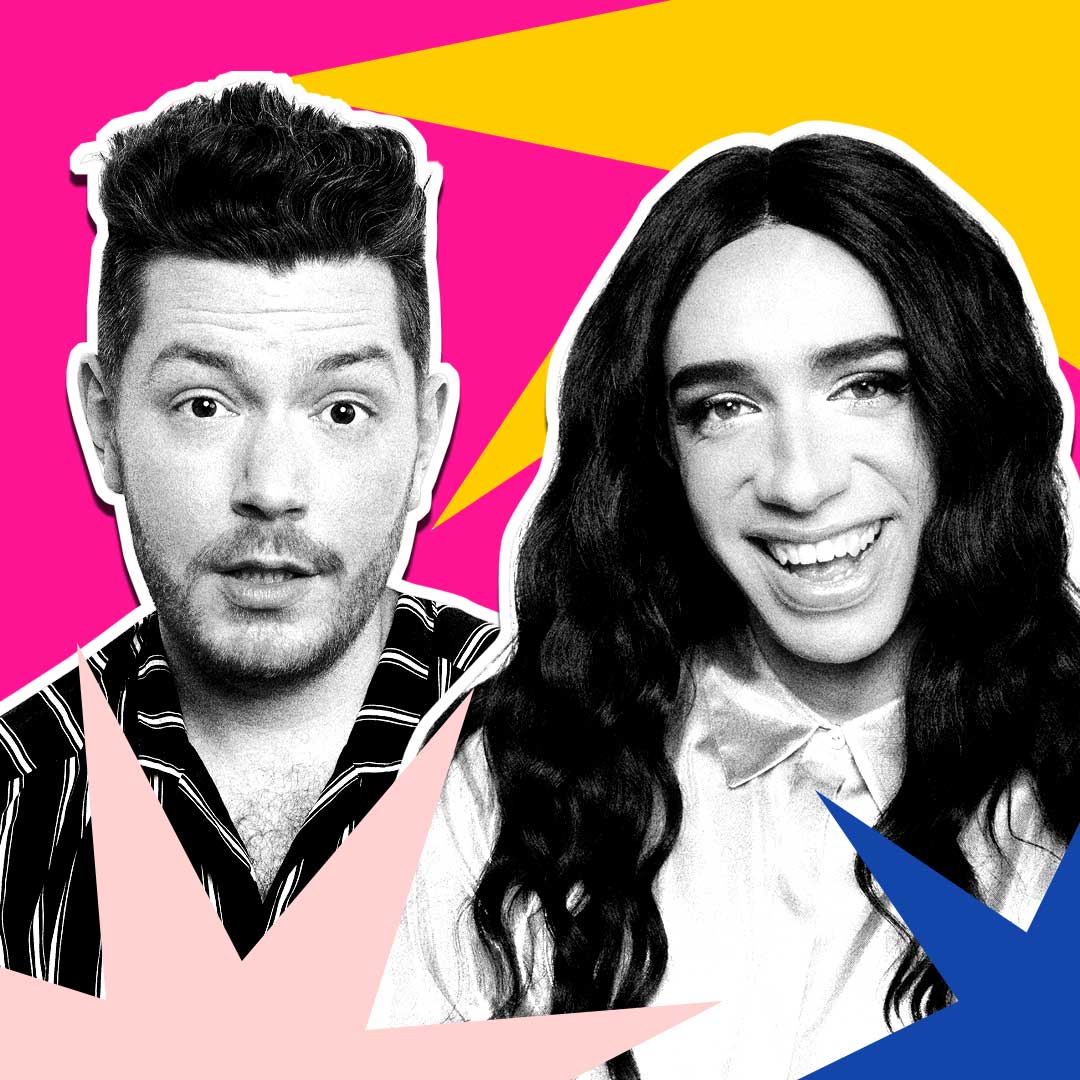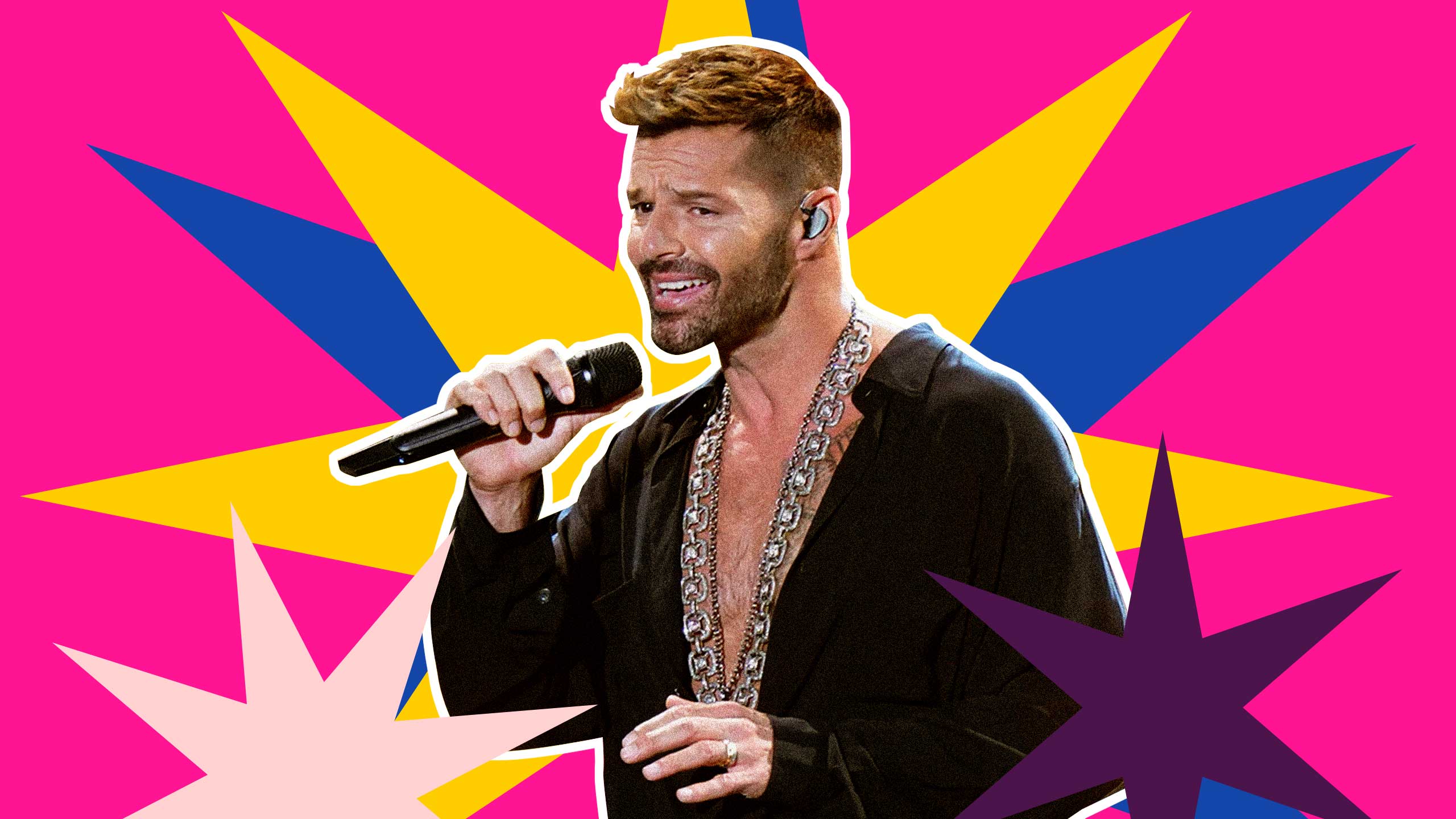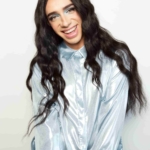It’s the first post-lockdown arena concert no one really asked for, but perhaps the one we deserve. On Oct. 9, Ricky Martin and Enrique Iglesias brought their co-headlining tour to Montreal where they were allowed to play a full capacity audience at the Bell Centre (in Toronto, the night before, the venue was only allowed 50 percent capacity)—a surreal moment for all in attendance, including our own Thomas Leblanc!
The tour taps into the culture’s seemingly insatiable desire for early 2000s nostalgia. During that era, Ricky and Enrique were huge. With the release of his self-titled English debut album and the international mega hit that was “Livin’ La Vida Loca,” 1999 was the year of Ricky Martin. Ricky’s international superstardom was relatively short-lived, particularly in the United States. His follow-up album, 2000’s Sound Loaded, sold less than half of its predecessor and Ricky became decidedly uncool. He would continue to record in Spanish but in North America, Ricky became a faint memory—that is until his coming out in 2010 revived his public profile—he got a full hour with Oprah!

Credit: Jimmi Francoeur/CBC; Brian Wong/Xtra
Enrique’s trajectory has been markedly different from Ricky’s. Enrique was uncool from the beginning, regarded by many as a lesser version of Ricky, though he did manage to score some pretty massive hits with “Bailamos,” “Be with You,” and “Hero.” Unlike Ricky’s music career, which would see diminishing returns album to album throughout the 2000s, Enrique’s popularity only continued to grow, arguably reaching its peak in the 2010s with massive international club hits like “I Like It” and “Tonight (I’m Loving You).” It’s during this time that Enrique became a heartthrob to party girls around the world—and they still lose their minds over him. His latest single, “ME PASE” has half a billion streams on Spotify! Meanwhile, Ricky has become the ultimate Insta hunk daddy.
Now this unlikely duo are out on the road together in the midst of a global pandemic and it’s a hilarious, wild ride. Your high school’s gay-straight alliance could never!
Thomas: Ricky and Enrique alternate who opens and closes the show, which means some nights kick off with “Livin’ La Vida Loca” while on other nights it’s “I’m a Freak” (Enrique’s lackluster 2014 collab with Pitbull). The tour was announced a few weeks before we went into lockdown in 2020. For the last 19 months, I had a little voice in my head telling me that if this show actually happened, I had to be there. I’m not a huge fan of either of them, but I knew this had to be a hilarious ride. And, girl, was I right.
About 10 days prior to the Montreal concert, public health authorities announced that sports arenas in Quebec would be allowed to operate at full capacity with the implementation of vaccination passports. The irony is that dancing is still not allowed indoors in Montreal, but 14,000 could gather inside the Bell Centre to party like it was 1999—literally. So, on a warm Saturday night, I joined thousands of fans and clueless suburbanites looking for a good time with the daddies of Latin pop.
Tranna: Was it worth it?
Thomas: Yes! I was lucky to witness, in person, the return to live music at Montreal’s arena with Ricky, surrounded by dancers and a full band, singing along to his biggest hit: “She’s into superstitions / Black cats and voodoo dolls / I feel a premonition / That girl’s gonna make me fall.” Sure, Ricky, whatever you say. “Livin’ La Vida Loca” is the ultimate “gay hottie in the closet” tune, and I couldn’t imagine a better way to shake off the awfulness of living through a pandemic, honestly.
Tranna: Believe it or not, Ricky Martin was my sexual awakening. I was 12 years old and watching the 1999 Grammy Awards (and rooting for Madonna’s Ray of Light album!). At the time, Ricky was relatively unknown to North American audiences, but that year he was nominated in one of the Latin categories for his hit, “La Copa de La Vida.” I had no idea who he was. He performed “Copa,” and I swear I have never been that turned on in my life. I was just starting puberty and Ricky’s hotness blew my mind. The leather pants, the hip thrusting, his little butt chin—I couldn’t breathe! He got a standing ovation that night and Madonna jumped to record a duet with him. It was a real star-is-born performance. Rewatching it now, it just seems really corny. Sorry, Ricky!
Thomas: I have to admit, I snubbed Ricky back in the day. He was too objectified for my taste, but looking back I think I was just intimidated by a man who was that comfortable in his body. I guess that’s why I was more into Enrique’s boy-next-door vibe. But for the record, my biggest crush was on fellow Puerto Rican hunk Adam Rodriguez, the guy stalking J.Lo in the “If You Had My Love” video! (For the record, Adam also plays Tito in “Magic Mike” and he’ll be a mentor on a male stripper reality competition). For many millenial gay kids like me, Ricky, Enrique and even Adam played a major role in figuring out what was considered desirable.
Tranna: During “Livin’ La Vida Loca” mania, I had a Ricky Martin poster in my room, next to a Cher poster and a Madonna one. I had the issue of People magazine with Ricky on the cover (it was a close up on his face and I used to kiss it). I was completely obsessed. But my obsession with him, like most people’s, was short-lived. When he came out with “She Bangs”—only a year after “Loca!”—I was too cool for it. The video and the song were embarrassingly bad. Looking back now, Ricky was not the Latin Robbie Williams, he was the Latin Michael Bolton. I wasn’t an Enrique fan at the time—I thought he was lame AF—but re-listening to his songs now, his musical output was so much better than Ricky’s. “Be with You” is a serious banger! And his duet with Kelis is a hidden gem! I never appreciated it at the time.
Thomas: I mean, they’re both commercial fabrications, but Enrique was to Ricky what Christina was to Britney: the runner-up. It’s never easy being number two! But I didn’t find Enrique that lame back then, honestly. Okay, maybe just a little bit, when he had his girlfriend Anna Kournikova play his love interest in the “Escape” music video—though the song is one of his classics.
Tranna: I remember everyone thinking Enrique was so lame when he first came onto the music scene. I hate to sound superficial but, when he got his mole removed, his career went to the next level. It unleashed the sexy beast within him. The mole was really holding him back. I remember they always used to shoot him from the side of his face that didn’t have the mole in videos and photoshoots.
Thomas: Sure, but you could argue that symbolically he replaced the mole on his face with Pitbull, a musical mole if there was ever one (they collaborated a lot together). Their videos are full of faceless young women in short skirts; it’s both disturbing and ridiculous. It’s annoying that our culture values straight men like these performing a certain kind of masculinity that’s all about sexual conquests.
Tranna: We’ve spoken about this a lot, but the early 2000s were so heteronormative. It’s the time we grew up in. When you look at who the big pop acts were at the time—Britney, Christina, J.Lo, Eminem, Linkin Park, Ja Rule, Nelly, Destiny’s Child—there was no one giving us queerness. Being out, especially for a guy, was career suicide at the time. And the gay rumours were constantly swirling around Ricky. I really respect that during those days he never said yes or no. He always refused to declare his sexuality. I will always hate Barbara Walters for the way she tried to corner him during their interview. It was a revolting moment and it perfectly represents the culture at that time. Do you think those gay rumours negatively affected his career?
Thomas: Possibly. Gay rumours were really more a form of attack, a way to push people like Ricky Martin into the closet and make sure he knew, as a queer man, what his place was. It was happening right after George Michael was forced to come out after the infamous bathroom raid. It was such a different landscape for gay men in music back then—and it was the year Lil Nas Z was born. I love to joke that the song that’s number one when someone is born has a lot of influence over their life; in the case of our king Montero, he came into this world on April 9, 1999, when Cher’s “Believe” was the biggest song in the world! What an iconic moment to be born.
“Gay rumours were a form of attack, a way to push people like Ricky Martin into the closet and make sure he knew, as a queer man, what his place was.”
Circling back to Ricky’s queerness, this is why I have so much respect for him today, knowing he had to face this kind of pressure and that ultimately he decided to live his truth.
Tranna: I think everyone was really happy for Ricky when he decided to come out publicly in 2010—maybe Lady Gaga’s “Born This Way” inspired him!
Thomas: Ricky is now 49 and he’s still breaking boundaries. We know it’s a taboo in our culture to be sexual over the age of 40. In the case of a gay man, there is a lot of stigma around aging and seeing Ricky dance and perform, being both absolutely butch and unapologetically flamboyant, was beautiful. We’ve talked a lot about women aging in pop, but I think the same can be said about men who aren’t traditional “rock stars” (those seem to get only more powerful with age). Of course, his body has changed (he’s thicker, but still conventionally hot), but I found it very liberating to watch him own his sexual powers (including in this Out magazine cover story with his husband).
Tranna: I have to say, I don’t really understand who Ricky’s music is for. His biggest hits have not aged well; they all sound like novelty records. The gays only seem interested in Ricky’s Instagram thirst traps, they don’t care about the music. And I don’t know if Ricky really appeals to straight cis women—other than gay ally soccer moms who have gay sons. Enrique’s audience is very clearly defined: horny party girls, and they fucking love him.
Thomas: Oh come on, Ricky is a LEGEND! The tackiness of his early hits is part of the fun. I’m actually obsessed with “Vente Pa’ Ca,” his collaboration with Maluma, which has close to 2 billion views on YouTube. This hit was a real redemption and of course Maluma and him are what gay sex dreams are made of.
Now, for Enrique, there is no way around it: his real talent is marketing, not music.
Tranna: Let’s get back to the details of the concert experience. You have to tell me everything. First, what was it like to be in a packed arena for the first time since the pandemic? Were you nervous?
Thomas: I wore my N95 mask the whole time and knowing that everyone there was vaxxed made me feel pretty safe. Of course, some folks were maskless, but it comes with the territory. People were standing and dancing; I filmed stories to make a point that it doesn’t really make sense that dancing is still not allowed indoors in Montreal.
Tranna: I heard that Ricky was a bit cold on stage, not really interacting much with the crowd.
Thomas: What? Maybe I was just drinking the Kool-Aid, but Ricky gave a far superior show than Enrique. He had dancers, costume changes and incredible chemistry with the musicians. Living his straight fantasy, Enrique believed this was a “rock” concert, filled with guitar solos, lazy sing-alongs and no dancers. I mean, are we surprised that the gay man stepped it up and that the straight one rested on his laurels?
Tranna: I was watching your live Instagram stories from the concert that night. It looked like the audience was going absolutely bonkers for Enrique. The funniest thing was that he wasn’t even singing—he was just hyping up the audience and getting you all to do the singing. I heard some people say they thought Enrique was drunk.
Thomas: Classic straight man behaviour! Seriously, Enrique has the tunes to make people go crazy, but he doesn’t even come close to Ricky when it comes to stage presence. The reggaeton “El Perdón” is one of my favourite Latin bops, but even then, Enrique was giving us so little. The audience was doing most of the work!
Tranna: Can we talk about the wardrobe differences between Ricky and Enrique? Ricky was wearing wide-legged leather shorts, a black trench coat and a foulard! Enrique was literally wearing a T-shirt and a baseball cap.
Thomas: If people need more proof that masculinity is performative, look no further than Enrique Iglesias and Ricky Martin side-by-side. Every conscious and unconscious decision made for this show had to do with both of them trying to provoke desire while adhering to what is considered acceptable queerness and straightness. Whereas Ricky appeared to be free from a traditional idea of “masculinity,” what we saw from Enrique was so antiquated. His act has barely evolved in the last 20 years. To watch them back-to-back made it so clear to me that male heterosexuality is a prison cell with very little room for expression.
Tranna: What we really needed to celebrate finally being able to be together in an arena again was a co-headlining tour with Jennifer Lopez and Shakira. But we got Ricky and Enrique instead, and we just have to accept that.
Thomas: I still can’t believe they didn’t announce their own tour after the 2020 Superbowl half-time show. I’m still waiting for “Waiting for Tonight,” after COVID-19.
Montreal-based comedians Thomas Leblanc and Tranna Wintour’s podcast Chosen Family streams on CBC, Apple and Google; new episodes drop every other Thursday.



 Why you can trust Xtra
Why you can trust Xtra


